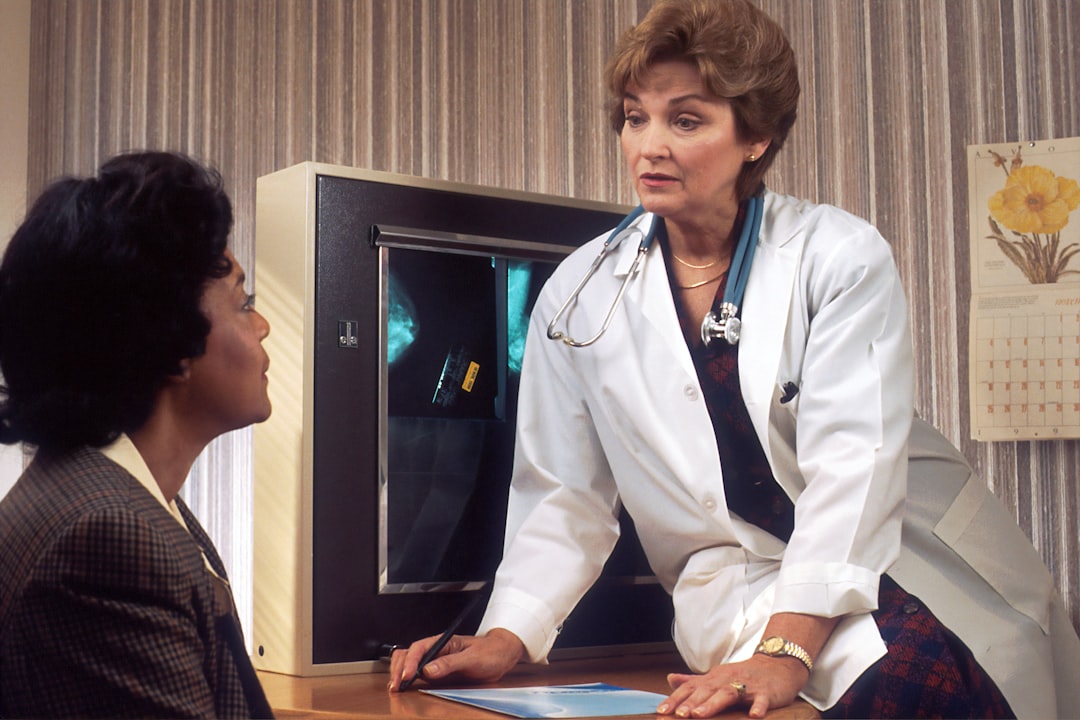Importance of Accountability in Healthcare
The Importance of Accountability in Healthcare
In the complex and ever-evolving world of healthcare, accountability stands as a cornerstone for ensuring quality care, patient safety, and professional integrity. Accountability in healthcare refers to the obligation of healthcare providers to meet established standards, adhere to ethical norms, and be answerable for their actions. This foundational principle is not just about adhering to regulations; it touches every aspect of patient care, from diagnosis to treatment and beyond.
At its core, accountability fosters trust between patients and healthcare providers. Trust is the bedrock of any effective therapeutic relationship. When patients believe that their healthcare providers are accountable-meaning they will take responsibility for their actions and decisions-they are more likely to follow medical advice, disclose important health information, and engage actively in their own care. This mutual trust can significantly enhance the effectiveness of treatment plans and improve health outcomes.
Moreover, accountability ensures that healthcare providers remain competent and up-to-date with the latest advancements in medicine. In a field where knowledge is continually expanding, ongoing education and adherence to best practices are critical. By holding themselves accountable, healthcare professionals commit to lifelong learning and continuous improvement. This dedication not only elevates individual performance but also contributes to the overall advancement of medical science.
Patient safety is another crucial area where accountability plays an indispensable role. Medical errors can have devastating consequences; hence a culture of accountability helps minimize these risks. When mistakes do occur, an accountable environment encourages transparent reporting and constructive analysis rather than punitive measures. This approach allows for systemic improvements that prevent future errors-ultimately safeguarding patients' well-being.
Accountability also extends beyond individual practitioners to encompass entire healthcare organizations. Hospitals, clinics, and other facilities must establish robust systems for monitoring performance, ensuring compliance with regulations, and addressing grievances promptly. Transparent policies regarding billing practices, patient confidentiality, and informed consent are essential components that contribute to organizational accountability.
Furthermore, accountability is integral in upholding ethical standards within the profession. Healthcare providers often face challenging situations that require them to balance competing interests-a patient's needs versus institutional policies or resource limitations versus optimal care strategies. An accountable professional navigates these dilemmas by prioritizing patient welfare while adhering to ethical guidelines set forth by governing bodies such as medical boards or professional associations.
In addition to fostering trustworthiness among patients and maintaining high standards within the profession itself; accountability also has significant implications on public perception of the healthcare system at large-especially pertinent amidst crises like pandemics where public confidence can waver easily based on perceived institutional reliability.
Finally yet importantly: financial stewardship falls under purview too! Accountable management ensures resources allocated efficiently without compromising service quality thus making equitable access possible across demographic spectrums regardless socioeconomic status-a fundamental tenet underpinning universal health coverage aspirations globally!
In conclusion: The importance of accountability cannot be overstated-it permeates every facet influencing how effectively we deliver compassionate competent equitable care whilst engendering societal trust essential sustaining robust resilient responsive systems capable meeting contemporary challenges head-on!
Common Issues and Challenges in Ensuring Accountability
Ensuring accountability among healthcare providers is a crucial aspect of maintaining the integrity and efficacy of the healthcare system. However, this task is fraught with numerous issues and challenges that need to be addressed comprehensively to ensure that patients receive the highest standard of care.
One significant issue in ensuring accountability is the complexity and fragmentation of the healthcare system itself. Healthcare involves a vast network of professionals, including doctors, nurses, technicians, and administrative staff, all operating within various institutions like hospitals, clinics, and private practices. This multi-layered structure can make it challenging to pinpoint where breakdowns in care occur. When something goes wrong-be it a medical error or substandard patient service-it can be difficult to trace back responsibility accurately. This diffusion of responsibility often leads to gaps in accountability.
Another challenge lies in the culture of silence that pervades many healthcare environments. Medical errors are one of the leading causes of death globally. Yet, they often go unreported due to fear of retribution or damage to professional reputation. This culture inhibits open discussions about mistakes and prevents systemic improvements from being made based on lessons learned from those errors.
Moreover, there is also an issue with standardized metrics for evaluating performance. Different institutions may have varying criteria for what constitutes quality care or successful outcomes. Without a uniform set of standards, it becomes problematic to hold providers accountable consistently across different settings. The lack of standardized metrics makes it difficult not only for regulatory bodies but also for patients who rely on these measurements to choose their healthcare providers.
Financial incentives can also impact accountability negatively. In some cases, fee-for-service models encourage quantity over quality, pushing providers to see more patients rather than spending adequate time with each one to deliver optimal care. This creates an environment where mistakes are more likely due to rushed consultations and overlooked details.
The legal landscape adds another layer of complexity when it comes to ensuring accountability among healthcare providers. Malpractice lawsuits are common but often fail to adequately address systemic issues that lead to errors or poor care in the first place. Additionally, these lawsuits can contribute further to a culture of fear and silence rather than encouraging transparency and improvement.
Patient involvement-or lack thereof-is another area that complicates accountability efforts. While informed patients can play a significant role in their own healthcare outcomes by asking questions and understanding treatment options, not all patients feel empowered or knowledgeable enough to do so. Furthermore, disparities in health literacy across different populations mean that some patients are less equipped than others to hold their providers accountable effectively.
To tackle these challenges comprehensively requires a multifaceted approach:
1) Strengthening Reporting Systems: Creating safe channels through which healthcare workers can report errors without fear can lead toward meaningful change.
2) Standardizing Metrics: Developing unified standards for measuring performance ensures consistency across various institutions.
3) Reforming Financial Incentives: Shifting towards value-based care models encourages better patient outcomes over mere volume.
4) Legal Reforms: Adjusting malpractice laws could focus on systemic improvements rather than just individual blame.
5) Patient Empowerment: Enhancing health literacy programs helps equip patients with tools necessary for holding their caregivers accountable.
By addressing these common issues head-on through collaborative efforts involving policymakers, medical institutions, healthcare professionals, and patients themselves-we stand a better chance at building an accountable system capable of delivering high-quality care for all its beneficiaries.
Legal and Ethical Frameworks Governing Accountability
Healthcare provider accountability is a critical aspect of maintaining trust and ensuring quality in medical care. Legal and ethical frameworks play a pivotal role in upholding this accountability, guiding healthcare providers in their professional conduct and decision-making processes.
Legally, healthcare providers are bound by a multitude of regulations and standards designed to safeguard patient welfare. These include laws related to malpractice, patient rights, confidentiality, and informed consent. For instance, the Health Insurance Portability and Accountability Act (HIPAA) in the United States mandates stringent measures for protecting patient information. Violations can lead to severe legal repercussions including fines and loss of licensure. This legal framework ensures that providers operate within the bounds of established norms, thereby fostering an environment where patients feel secure about their privacy and rights.
Ethically, healthcare providers adhere to principles laid out by governing bodies such as the American Medical Association (AMA). The AMA's Code of Medical Ethics emphasizes core values like beneficence, non-maleficence, autonomy, and justice. Beneficence dictates that physicians must act in the best interest of patients while non-maleficence requires them to avoid harm. Autonomy respects patients' rights to make informed decisions about their own health care, whereas justice demands fairness in providing care regardless of socioeconomic status or other discriminatory factors.
The intersection of these legal and ethical frameworks creates a comprehensive system that holds healthcare providers accountable not only for their actions but also for their professional integrity. For example, when a patient files a complaint about a medical error or negligence, both legal standards (like those pertaining to malpractice) and ethical guidelines (such as taking responsibility for mistakes) come into play during the investigation process.
Moreover, continuing education is paramount in ensuring that healthcare providers remain updated on evolving laws and ethical considerations pertinent to medical practice. Regular training sessions on topics such as patient confidentiality or new medical technologies help providers stay compliant with current standards while enhancing their ability to deliver high-quality care.
In conclusion, the legal and ethical frameworks governing accountability are indispensable in the realm of healthcare provision. They serve not only as mechanisms for enforcing discipline but also as guides that shape the moral compass of medical professionals. By adhering to these frameworks, healthcare providers can ensure they offer care that is safe, effective, respectful of patients' rights, and equitable across diverse populations. Thusly anchored in both law and ethics, provider accountability becomes a cornerstone upon which trust in the healthcare system is built.
Role of Regulatory Bodies and Accreditation Organizations
In the complex and ever-evolving landscape of healthcare, ensuring accountability among providers is paramount. This accountability not only safeguards patient safety but also enhances the overall quality of care. Central to this endeavor are regulatory bodies and accreditation organizations, which play a crucial role in establishing standards, monitoring compliance, and fostering continuous improvement within the healthcare system.
Regulatory bodies are governmental agencies or authorities tasked with creating and enforcing rules that govern healthcare practices. These entities ensure that healthcare providers adhere to laws designed to protect public health. For example, in the United States, the Centers for Medicare & Medicaid Services (CMS) sets regulations for hospitals and other healthcare facilities that receive federal funding. Similarly, state-level agencies oversee licensure requirements for medical professionals, ensuring they meet specific educational and ethical standards before they can practice.
The impact of regulatory bodies extends beyond merely setting rules; they also have enforcement mechanisms to ensure compliance. Inspections, audits, and penalties for non-compliance act as deterrents against substandard practices. By maintaining rigorous oversight, regulatory bodies help cultivate an environment where patient safety is prioritized over shortcuts or negligence. Moreover, their role in collecting data on healthcare outcomes enables them to identify trends and areas needing reform, thereby influencing policy decisions aimed at improving care quality.
Complementing the efforts of regulatory bodies are accreditation organizations-independent entities that evaluate healthcare institutions against established benchmarks of excellence. Accreditation serves as a seal of approval indicating that a facility meets high standards across various domains such as patient safety, clinical performance, and organizational management. The Joint Commission is one such prominent organization in the United States known for its comprehensive evaluation process covering hospitals, nursing homes, outpatient clinics, and other types of healthcare providers.
Accreditation is often voluntary but highly sought after due to its implications for reputation and financial viability. Accredited institutions are generally perceived as more trustworthy by patients and may gain preferential consideration from insurers. The rigorous assessment procedures employed by these organizations involve peer reviews by experts who scrutinize every aspect of a facility's operations. This external validation fosters a culture of transparency and accountability within accredited institutions.
Moreover, accreditation organizations contribute significantly to continuous quality improvement through their focus on best practices and evidence-based medicine. They provide guidelines based on cutting-edge research and facilitate educational initiatives aimed at helping providers stay current with advancements in medical science. Through regular re-accreditation processes, these organizations ensure that facilities do not become complacent but strive continually toward higher standards.
In summary, regulatory bodies and accreditation organizations serve as twin pillars supporting healthcare provider accountability. Regulatory bodies enforce mandatory standards designed to protect public health while providing mechanisms for compliance oversight. Accreditation organizations offer a voluntary yet prestigious pathway for facilities to demonstrate their commitment to excellence through rigorous evaluations based on best practices. Together, they create a robust framework that holds healthcare providers accountable while fostering an environment conducive to continuous quality improvement-ultimately benefiting patients through safer and higher-quality care.
Case Studies Highlighting Successes and Failures
In the realm of healthcare, provider accountability is fundamental to ensuring patient safety, effective treatment, and overall trust in the medical system. A closer examination of case studies that highlight both successes and failures offers valuable insights into how accountability can be upheld or compromised.
One notable success story is that of the Virginia Mason Medical Center in Seattle. This healthcare institution implemented a comprehensive accountability framework known as the Virginia Mason Production System (VMPS), inspired by Toyota's lean manufacturing principles. By prioritizing patient-centered care and continuous improvement, VMPS led to remarkable outcomes. For instance, they managed to reduce their hospital-acquired infection rates significantly by standardizing procedures and fostering a culture where staff felt empowered to report errors without fear of retribution. Transparency and responsibility became cornerstones of the institution's ethos, resulting in better patient outcomes and enhanced public trust.
Contrastingly, the case of Mid Staffordshire NHS Foundation Trust in England serves as a cautionary tale about what happens when accountability falters. Between 2005 and 2008, this hospital was plagued by severe lapses in care quality due to systemic issues such as understaffing, inadequate training, and poor leadership. The lack of accountability mechanisms allowed these problems to fester unnoticed. Patients suffered from neglect; basic hygiene standards were ignored; and ultimately, mortality rates soared above national averages. An independent inquiry revealed that organizational priorities were skewed towards financial targets rather than patient welfare. The scandal underscored the dire consequences when transparent oversight is absent.
These contrasting examples underscore several key points about provider accountability in healthcare:
1. **Culture Matters:** Organizations with a culture that encourages reporting mistakes without fear are more likely to address issues proactively.
2. **Leadership Is Crucial:** Effective leadership sets the tone for accountability practices within an organization.
3. **Patient-Centered Focus:** Systems designed around patient needs tend to yield better health outcomes.
4. **Transparency Enhances Trust:** Open communication about processes and errors builds public confidence.
In conclusion, while Virginia Mason exemplifies how robust accountability frameworks can lead to superior healthcare delivery, Mid Staffordshire illustrates how its absence can result in catastrophic failures. These case studies serve as potent reminders for healthcare providers worldwide: maintaining high standards of accountability is not just beneficial but essential for safeguarding patients' well-being and retaining their trust.
Strategies for Improving Accountability Among Healthcare Providers
Strategies for Improving Accountability Among Healthcare Providers
Accountability in healthcare is not just a buzzword; it's a critical component that ensures safety, trust, and quality care for patients. In an industry where the stakes are incredibly high, improving accountability among healthcare providers can lead to significant enhancements in patient outcomes and overall system efficiency. Here are several strategies that can help achieve this goal.
First and foremost, fostering a culture of transparency is essential. Transparency involves open communication about performance metrics, errors, and successes. When healthcare providers openly share data on treatment outcomes, patient satisfaction scores, and even mistakes, it creates an environment where continuous improvement is possible. This culture of openness encourages staff to take responsibility for their actions without fear of undue punishment.
Another key strategy is implementing robust training programs focused on ethical practice and professional responsibility. While technical skills are crucial, instilling a strong sense of moral duty towards patients and colleagues can elevate the standard of care provided. Regular workshops and seminars on topics like medical ethics, communication skills, and teamwork can reinforce these values.
The use of technology also offers promising avenues for enhancing accountability. Electronic Health Records (EHR) systems allow for meticulous documentation of patient interactions and treatments. These records not only facilitate better coordination among healthcare providers but also provide an auditable trail that holds individuals accountable for their actions. Additionally, decision-support tools integrated into EHRs can guide providers in making evidence-based decisions, thereby reducing variability in care.
Performance evaluations should be another cornerstone in the quest for improved accountability. Regular assessments that include peer reviews can provide valuable feedback to healthcare providers about their clinical performance and professional behavior. These evaluations should be objective, constructive, and aimed at both recognizing excellence and identifying areas for improvement.
Patient involvement is another critical factor often overlooked in discussions about accountability. Engaging patients through feedback surveys or patient advisory councils gives them a voice in their care process and holds providers accountable to those they serve directly. Patient-centered care models emphasize respecting patients' preferences, needs, and values-further promoting a sense of mutual accountability.
Lastly, leadership plays an indispensable role in setting the tone for accountability within any healthcare organization. Leaders who model integrity, transparency, and responsibility inspire similar behaviors among their staff. Policies set by top management regarding reporting errors or near-misses without punitive repercussions encourage a learning-oriented approach rather than one focused solely on blame.
In conclusion, improving accountability among healthcare providers requires a multifaceted approach that includes fostering transparency, implementing robust training programs, leveraging technology effectively, conducting regular performance evaluations, involving patients meaningfully in their own care processes, and setting strong examples through leadership. When these strategies are employed cohesively within a supportive organizational culture, the result is not just enhanced provider accountability but ultimately better patient care outcomes as well.





